Invited Speakers
Couple and Family Interventions to Promote Trauma Recovery: Where Are We and Where Can We Go?
Candice M. Monson
Professor
Ryerson University
The last decade has seen increasing recognition of the role of close others in understanding and intervening to facilitate trauma recovery. In this presentation, there will be a review of the types of interventions that have been developed and tested for couples or families with an adult member with a history of traumatization or posttraumatic stress disorder (PTSD). A heuristic for organizing the literature is presented to facilitate understanding the gaps and opportunities. Future directions to explore will be presented.
 Candice M. Monson, PhD, is professor of psychology at Ryerson University in Toronto, Ontario. Dr. Monson is one of the foremost experts on the interpersonal aspects of traumatic stress and the use of individual and conjoint therapies to treat PTSD. She has been externally funded and has published extensively on the development, evaluation and dissemination of PTSD treatments and interpersonal factors in trauma recovery. Recognizing her distinguished contributions as a clinician, researcher and educator, she is a fellow of the American and Canadian Psychological Associations and Association of Behavioral and Cognitive Therapies, a Beck Institute Scholar, received the Canadian Psychological Association Trauma Psychologist of the Year Award in 2013, was named the Outstanding Mentor by the International Society for Traumatic Stress Studies in 2014, and was inducted into the Royal Society of Canada in 2016. She has co-authored seven books, including Cognitive Processing Therapy: A Comprehensive Manual and Cognitive-Behavioral Conjoint Therapy for PTSD, and has published over 150 publications.
Candice M. Monson, PhD, is professor of psychology at Ryerson University in Toronto, Ontario. Dr. Monson is one of the foremost experts on the interpersonal aspects of traumatic stress and the use of individual and conjoint therapies to treat PTSD. She has been externally funded and has published extensively on the development, evaluation and dissemination of PTSD treatments and interpersonal factors in trauma recovery. Recognizing her distinguished contributions as a clinician, researcher and educator, she is a fellow of the American and Canadian Psychological Associations and Association of Behavioral and Cognitive Therapies, a Beck Institute Scholar, received the Canadian Psychological Association Trauma Psychologist of the Year Award in 2013, was named the Outstanding Mentor by the International Society for Traumatic Stress Studies in 2014, and was inducted into the Royal Society of Canada in 2016. She has co-authored seven books, including Cognitive Processing Therapy: A Comprehensive Manual and Cognitive-Behavioral Conjoint Therapy for PTSD, and has published over 150 publications.
Overlooked Signs of Suicidality in Black Youth
Michael A. Lindsey
Executive Director, McSilver Institute for Poverty Policy and Research at New York University (NYU),
Constance and Martin Silver Professor of Poverty Studies, NYU Silver School of Social Work
New York University
Suicide is preventable. For Black people, stigma regarding mental health challenges and a common belief that Black people don’t die by suicide add complexity to the challenge of saving lives. Sadly, the suicide death rate among Black youth has been found to be increasing faster than any other racial or ethic group. Black adolescents are significantly less likely to receive care for depression with pervasive structural inequities, social determinants of health, stigma and mistrust of the healthcare system creating daunting barriers to treatment. What can we do to prevent these deaths? What can schools, funders, family members, health institutions and governmental entities do to provide the necessary investment and training to properly address the mental wellness needs of Black youth? In this presentation, Dr. Lindsey will discuss signs and symptoms of depression, suicide and anxiety in Black children. He will also explore the importance of access to care, as well as preventive measures and policy.
-sq.jpg?width=150&height=150) Dr. Michael A. Lindsey is a noted scholar in the fields of child and adolescent mental health, as well as a leader in the search for knowledge and solutions to generational poverty and inequality. He is the executive director of the McSilver Institute for Poverty Policy and Research at New York University (NYU), the Constance and Martin Silver Professor of Poverty Studies at NYU Silver School of Social Work, and an Aspen Health Innovators Fellow. He also leads a university-wide Strategies to Reduce Inequality initiative from the NYU McSilver Institute. At the NYU McSilver Institute, Dr. Lindsey leads a team of researchers, clinicians, social workers and other professionals who are committed to creating new knowledge about the root causes of poverty, developing evidence-based interventions to address its consequences, and rapidly translating their findings into action through policy and best practices. Additionally, he leads the working group of experts supporting the Congressional Black Caucus Emergency Taskforce on Black Youth Suicide and Mental Health, which created the report Ring the Alarm: The Crisis of Black Youth Suicide in America. Dr. Lindsey holds a Ph.D. in social work and MPH from the University of Pittsburgh, an MSW from Howard University, and a B.A. in sociology from Morehouse College.
Dr. Michael A. Lindsey is a noted scholar in the fields of child and adolescent mental health, as well as a leader in the search for knowledge and solutions to generational poverty and inequality. He is the executive director of the McSilver Institute for Poverty Policy and Research at New York University (NYU), the Constance and Martin Silver Professor of Poverty Studies at NYU Silver School of Social Work, and an Aspen Health Innovators Fellow. He also leads a university-wide Strategies to Reduce Inequality initiative from the NYU McSilver Institute. At the NYU McSilver Institute, Dr. Lindsey leads a team of researchers, clinicians, social workers and other professionals who are committed to creating new knowledge about the root causes of poverty, developing evidence-based interventions to address its consequences, and rapidly translating their findings into action through policy and best practices. Additionally, he leads the working group of experts supporting the Congressional Black Caucus Emergency Taskforce on Black Youth Suicide and Mental Health, which created the report Ring the Alarm: The Crisis of Black Youth Suicide in America. Dr. Lindsey holds a Ph.D. in social work and MPH from the University of Pittsburgh, an MSW from Howard University, and a B.A. in sociology from Morehouse College.
Desensitized or Hypersensitized?: Towards a Better Understanding of Reactivity to Community Violence Exposure in Black Adolescents
Noni Gaylord-Harden
Professor, Department of Psychological and Brain Sciences
Texas A&M University
Structural and institutional racism creates segregated communities of concentrated poverty and scarce resources which elevate levels of violent crime. As such, Black youth are overrepresented in disinvested urban communities and disproportionately exposed to community violence. Current theory and practice has held that high levels of community violence exposure lead to more emotional distress and more behavioral problems, but the association between community violence and indicators of emotional distress has been unexpectedly inconsistent. It has been proposed that the unexpected findings may reflect a desensitization process, in which youth “adapt” to violence exposure with emotional numbing and normalization of violence. Unfortunately, existing models of desensitization describe youth responses to violence as pathological or maladaptive. In contrast, a conditional adaptation perspective highlights how behaviors that have been historically interpreted as deviance or pathology, can be viewed as agentic, predictable, and effective responses to navigating hostile and inhibiting environments. Thus, the current presentation will discuss the application of conditional adaptation models to reframe reactivity to community violence exposure among Black youth and will discuss the need for and benefits of trauma-informed interventions that are contextually and culturally relevant.
 Noni Gaylord-Harden, PhD, is a professor in the Department of Psychological and Brain Sciences at Texas A&M University. Dr. Gaylord-Harden conducts research on stress, coping and psychosocial functioning in Black youth and families in challenging contexts. Her most recent work focuses on the impact of exposure to community violence on Black adolescents in disinvested, urban communities. The overarching goals of her work are to address disparities in community violence exposure and traumatic loss, to understand the impact of emotional desensitization and physiological hypersensitization to violence, and to minimize the deleterious impact of violence exposure by enhancing existing strengths and assets embedded in Black youth, families and communities. She has published several peer-reviewed research articles and presented numerous scientific conference presentations on these topics, and her team aims to utilize findings from this research to develop and implement culturally and contextually relevant, trauma-informed interventions for Black adolescents and families. She has received funding from The Office of Juvenile Justice and Delinquency Prevention, the National Institute of Child Health and Human Development, the American Psychological Association and the Institute of Education Sciences for her research efforts.
Noni Gaylord-Harden, PhD, is a professor in the Department of Psychological and Brain Sciences at Texas A&M University. Dr. Gaylord-Harden conducts research on stress, coping and psychosocial functioning in Black youth and families in challenging contexts. Her most recent work focuses on the impact of exposure to community violence on Black adolescents in disinvested, urban communities. The overarching goals of her work are to address disparities in community violence exposure and traumatic loss, to understand the impact of emotional desensitization and physiological hypersensitization to violence, and to minimize the deleterious impact of violence exposure by enhancing existing strengths and assets embedded in Black youth, families and communities. She has published several peer-reviewed research articles and presented numerous scientific conference presentations on these topics, and her team aims to utilize findings from this research to develop and implement culturally and contextually relevant, trauma-informed interventions for Black adolescents and families. She has received funding from The Office of Juvenile Justice and Delinquency Prevention, the National Institute of Child Health and Human Development, the American Psychological Association and the Institute of Education Sciences for her research efforts.
American Indian Historical Trauma: Progress or Regress in Addressing Structural Racism?
Joseph P. Gone
Professor
Harvard University
Contemporary American Indians suffer from disproportionately high degrees of psychiatric distress. Mental health researchers and professionals, as well as American Indian community members, have consistently associated these disproportionate rates of distress with indigenous historical experiences of European and Euro-American colonization. Thus, although American Indians have long contended with racism, the dynamics of our racialization are typically subsumed under the broader social formation of colonialism. The result has been the rise of an alterNative indigenous explanatory model for “mental health” problems in American Indian communities. Through collaborative research projects with several American Indian communities over two decades, I have come to recognize that this popular explanatory model proposes that the principle ills of “Indian Country” are not properly construed as mental illness but rather as historical trauma; that the primary cause of mental health disparities is not faulty genes or broken brains but rather the savagery of Euro-American colonization; and that the promising cure for mental health problems lies in indigenous cultural reclamation and traditional healing. This “culture-as-treatment” approach is increasingly popular throughout indigenous America, and it would seem to resonate with broader indigenous “decolonization” efforts in general. And yet, paradoxically, this rising indigenous emphasis on culture, tradition, and especially healing may also be somewhat limited in directly addressing the structural violence wrought by colonization insofar as it turns inward (to community life, to personal experience) rather than outward (to unequal societal relations, to constrained opportunities for economic viability). This presentation will facilitate collective consideration of this paradox by expanding professional consideration of the range of indigenous responses to the colonial legacy as well as by exploring the complex conceptual relations between healing and justice, whether personal or collective.
 Joseph P. Gone is an international expert in the psychology and mental health of American Indians and other Indigenous peoples. A professor at Harvard University, Dr. Gone has collaborated with tribal communities for over 25 years to critique conventional mental health services and harness traditional culture and spirituality for advancing Indigenous well-being. He has published more than 85 scientific articles and chapters and received recognition in his fields through several fellowships and career awards, including a year-long residency at the Center for Advanced Study in the Behavioral Sciences at Stanford University. A graduate of Harvard College and the University of Illinois, Dr. Gone also trained at Dartmouth College and McLean Hospital/Harvard Medical School. He is currently a fellow of the Association for Psychological Science and of seven divisions of the American Psychological Association (APA). An enrolled member of the Aaniiih-Gros Ventre Tribal Nation of Montana, he also served briefly as the Chief Administrative Officer for the Fort Belknap Indian reservation. In 2014, Gone was awarded a Guggenheim Fellowship. Most recently, he is the recipient of the 2021 APA Award for Distinguished Professional Contributions to Applied Research.
Joseph P. Gone is an international expert in the psychology and mental health of American Indians and other Indigenous peoples. A professor at Harvard University, Dr. Gone has collaborated with tribal communities for over 25 years to critique conventional mental health services and harness traditional culture and spirituality for advancing Indigenous well-being. He has published more than 85 scientific articles and chapters and received recognition in his fields through several fellowships and career awards, including a year-long residency at the Center for Advanced Study in the Behavioral Sciences at Stanford University. A graduate of Harvard College and the University of Illinois, Dr. Gone also trained at Dartmouth College and McLean Hospital/Harvard Medical School. He is currently a fellow of the Association for Psychological Science and of seven divisions of the American Psychological Association (APA). An enrolled member of the Aaniiih-Gros Ventre Tribal Nation of Montana, he also served briefly as the Chief Administrative Officer for the Fort Belknap Indian reservation. In 2014, Gone was awarded a Guggenheim Fellowship. Most recently, he is the recipient of the 2021 APA Award for Distinguished Professional Contributions to Applied Research.
Conflict-Related Trauma in an Ever-Changing World
Moderator: Belinda Liddell
Panelists: Kenneth Miller, Marit Sijbranij, Angela Nickerson and Peter Ventevogel
As conflicts and situations of mass violence unfold globally, individuals, families and entire communities are at risk of significant trauma-related psychopathology. While there have been major advances in psychotraumatology research and practice in addressing the recovery needs of conflict-affected populations, significant challenges persist. Conflicts often do not have a clear end point, marked by long-term instability and continued risk of human rights violations such as persecution, detention or torture. The forcible displacement of millions of people who cannot return home, but face limited resettlement opportunities, means that addressing trauma recovery needs is complex. At the same time, conflicts occur against a backdrop of other major events and stressors – for instance, economic insecurity, racial, ethnic and gender-based inequalities, climate change, natural disasters and the COVID-19 pandemic.
Belinda Liddell
Senior Research Fellow, University of New South Wales Australia
Deputy Director, Refugee Trauma and Recovery Program
 Belinda Liddell is a senior research fellow at the School of Psychology, University of New South Wales Australia and deputy director of the Refugee Trauma and Recovery Program. Her research focuses on mapping the impact of displacement and human rights violations on the brain and psychological processes and understanding the psychological mechanisms that underpin refugee mental health, postmigration adaptation and settlement pathways. She also conducts research into how cultural factors influence the experience of trauma and the manifestation of PTSD symptoms. Liddell is interested in the human rights implications of traumatic stress studies and the translation of research into evidence-based policy. Belinda has directed research programs with refugee and postconflict communities in Australia, Cambodia, Timor-Leste and Indonesia, and collaborates extensively with service providers, non-government organisations and communities in her research. Her research has been funded by the Australian Research Council and the Churchill Trust of Australia.
Belinda Liddell is a senior research fellow at the School of Psychology, University of New South Wales Australia and deputy director of the Refugee Trauma and Recovery Program. Her research focuses on mapping the impact of displacement and human rights violations on the brain and psychological processes and understanding the psychological mechanisms that underpin refugee mental health, postmigration adaptation and settlement pathways. She also conducts research into how cultural factors influence the experience of trauma and the manifestation of PTSD symptoms. Liddell is interested in the human rights implications of traumatic stress studies and the translation of research into evidence-based policy. Belinda has directed research programs with refugee and postconflict communities in Australia, Cambodia, Timor-Leste and Indonesia, and collaborates extensively with service providers, non-government organisations and communities in her research. Her research has been funded by the Australian Research Council and the Churchill Trust of Australia.
Marit Sijbranij
Professor, Clinical Psychology
Co-Director, World Health Organization Collaborative Center for Research and Dissemination of Psychological Interventions
Vrije Universiteit (VU) Amsterdam
Vice President, International Society for Traumatic Stress Studies
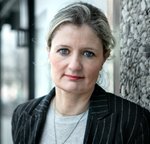 Dr. Sijbrandij is a professor of clinical psychology and co-director of the World Health Organization Collaborative Center for Research and Dissemination of Psychological Interventions at the Vrije Universiteit (VU) University Amsterdam, the Netherlands. Her research is focused on the prevention, early detection and treatment of mental health problems following trauma and adversity in a global context and in vulnerable populations.
Dr. Sijbrandij is a professor of clinical psychology and co-director of the World Health Organization Collaborative Center for Research and Dissemination of Psychological Interventions at the Vrije Universiteit (VU) University Amsterdam, the Netherlands. Her research is focused on the prevention, early detection and treatment of mental health problems following trauma and adversity in a global context and in vulnerable populations.
Angela Nickerson
Professor, UNSW Sydney
DIrector, Refugee Trauma and Recovery Program
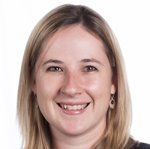 Angela Nickerson is Professor at the School of Psychology at UNSW Sydney, and Director of the Refugee Trauma and Recovery Program. Her research focuses on understanding the psychological mechanisms underpinning refugee and post-conflict mental health, and developing effective interventions for traumatic stress reactions in refugees. She is also interested in the impact of policy on refugee mental health, and cross-cultural considerations in psychological processes. She has worked with refugee and post-conflict populations in Australia, Indonesia, Timor-Leste, Switzerland, and the United States.
Angela Nickerson is Professor at the School of Psychology at UNSW Sydney, and Director of the Refugee Trauma and Recovery Program. Her research focuses on understanding the psychological mechanisms underpinning refugee and post-conflict mental health, and developing effective interventions for traumatic stress reactions in refugees. She is also interested in the impact of policy on refugee mental health, and cross-cultural considerations in psychological processes. She has worked with refugee and post-conflict populations in Australia, Indonesia, Timor-Leste, Switzerland, and the United States.
Ayahuasca, Peyote and MDMA in the Healing of Trauma
Moderator: Anne Wagner
Panelists: Elena Valera Vasquez, Tanya Kammonen, Dawn D. Davis and Marcela Ot'alora G
This panel conversation will bring together women who work closely with psychedelics to discuss their use, and their protection, for the healing of trauma. Elena Valera Vasquez, a Shipiba curandera, with translation help from Tanya Kammonen, will share about the use of Ayahuasca in Peru. Dawn D. Davis, a Newe (Shoshone-Bannock), PhD candidate, Indigenous researcher and educator, will discuss Peyote issues and concerns and the need for Peyote survival. Marcela Ot'alora G, MA LPC, will share about the use of MDMA in the treatment of PTSD. Dr. Anne Wagner will serve as moderator.
Anne Wagner
Founder, Remedy
Adjunct Professor and Associate Member of the Yeates School of Graduate Studies, Ryerson University
Global Ambassador, International Society for Traumatic Stress Studies
Board of Directors Member, Casey House
 Dr. Anne Wagner, C.Psych., is the founder of Remedy, a mental health innovation community, and an adjunct professor in the Department of Psychology as well as an associate member of the Yeates School of Graduate Studies at Ryerson University. Anne is the lead investigator of the pilot trial of cognitive processing therapy (CPT) for PTSD + MDMA and the upcoming randomized trial of cognitive behavioral conjoint therapy for PTSD (CBCT) + MDMA. Anne is deeply committed to bridging the worlds of psychotherapy and non-ordinary states of consciousness and has a passion for its use for relational healing. She is committed to supporting and protecting traditional and Indigenous wisdom with sacred medicines and consciousness expansion, and uplifting the voices of women in the psychedelic world. She is the past chair of the Traumatic Stress Section of the Canadian Psychological Association, a global ambassador for the International Society for Traumatic Stress Studies and sits on the board of directors of Casey House (Toronto’s HIV/AIDS Hospital).
Dr. Anne Wagner, C.Psych., is the founder of Remedy, a mental health innovation community, and an adjunct professor in the Department of Psychology as well as an associate member of the Yeates School of Graduate Studies at Ryerson University. Anne is the lead investigator of the pilot trial of cognitive processing therapy (CPT) for PTSD + MDMA and the upcoming randomized trial of cognitive behavioral conjoint therapy for PTSD (CBCT) + MDMA. Anne is deeply committed to bridging the worlds of psychotherapy and non-ordinary states of consciousness and has a passion for its use for relational healing. She is committed to supporting and protecting traditional and Indigenous wisdom with sacred medicines and consciousness expansion, and uplifting the voices of women in the psychedelic world. She is the past chair of the Traumatic Stress Section of the Canadian Psychological Association, a global ambassador for the International Society for Traumatic Stress Studies and sits on the board of directors of Casey House (Toronto’s HIV/AIDS Hospital).
Dawn D. Davis
Co-editor, Journal of Native Sciences
Member, Shoshone-Bannock Tribes
 Dawn D. Davis is a mother, a wife, co-editor of the Journal of Native Sciences, a Newe and a member of the Shoshone-Bannock Tribes. She is currently a PhD candidate and a twice-awarded National Science Foundation recipient as a fellow under the Integrative Graduate Education Research Traineeship and an Indigenous STEM scholar. Current research includes the use of GIS to model changes in Peyote habitat due to anthropogenic impacts across its range. Davis has shared her research among Indigenous, academic, ethnobotanical and psychedelic audiences nationally and internationally.
Dawn D. Davis is a mother, a wife, co-editor of the Journal of Native Sciences, a Newe and a member of the Shoshone-Bannock Tribes. She is currently a PhD candidate and a twice-awarded National Science Foundation recipient as a fellow under the Integrative Graduate Education Research Traineeship and an Indigenous STEM scholar. Current research includes the use of GIS to model changes in Peyote habitat due to anthropogenic impacts across its range. Davis has shared her research among Indigenous, academic, ethnobotanical and psychedelic audiences nationally and internationally.
Marcela Ot’alora G.
Private Practice, Trainer and Supervisor
Researcher, Multidisciplinary Association for Psychedelic Studies (MAPS)
 Marcela Ot’alora G. was born and raised in Colombia and currently lives in Boulder, Colorado. She has an MA in transpersonal psychology from Naropa University in Boulder, Colorado, and an MFA in fine arts from the University of North Carolina at Greensboro. Marcela started her career as an installation artist and teacher, where she used art as a vehicle for self-expression and processing trauma. For over 20 years she has been in private practice working primarily with PTSD with underrepresented communities. Her interest and focus on trauma led her to understand the healing process as an intimate reconnection with one’s innate essence through love, integrity, acceptance and honoring of the human spirit. In addition to working with trauma and PTSD, she has dedicated her professional life to training and research. She has worked on various studies sponsored by the Multidisciplinary Association for Psychedelic Studies (MAPS) as a co-therapist and a principal investigator using MDMA-assisted psychotherapy for the treatment of PTSD. Additionally, she is a trainer and supervisor.
Marcela Ot’alora G. was born and raised in Colombia and currently lives in Boulder, Colorado. She has an MA in transpersonal psychology from Naropa University in Boulder, Colorado, and an MFA in fine arts from the University of North Carolina at Greensboro. Marcela started her career as an installation artist and teacher, where she used art as a vehicle for self-expression and processing trauma. For over 20 years she has been in private practice working primarily with PTSD with underrepresented communities. Her interest and focus on trauma led her to understand the healing process as an intimate reconnection with one’s innate essence through love, integrity, acceptance and honoring of the human spirit. In addition to working with trauma and PTSD, she has dedicated her professional life to training and research. She has worked on various studies sponsored by the Multidisciplinary Association for Psychedelic Studies (MAPS) as a co-therapist and a principal investigator using MDMA-assisted psychotherapy for the treatment of PTSD. Additionally, she is a trainer and supervisor.
Pharmacological Manipulation of Memory Processes to Treat PTSD: A Presidential Panel
Panelists: Eric Bui, Naomi Simon, Murray Stein, Kerry Ressler and Roger Pittman
Eric Bui
Professor, University of Caen Normandy
Adjunct Investigator, Massachusetts General Hospital
President, International Society for Traumatic Stress Studies
To date, only two selective serotonin reuptake inhibitor antidepressants – sertraline and paroxetine – have received approval for the treatment of PTSD, a condition introduced in the DSM, forty years ago. Over the past few decades, therapeutic innovations in pharmacological treatment of PTSD have been limited by different factors including: the almost exclusive focus on the monoamine system; a gap in translating knowledge gained from basic research to clinical research; and a medical framework in which we sought to compensate a chronic deficit by administering a drug. However, advances in our understanding of fear acquisition and extinction processes have been recently leveraged to develop or repurpose pharmacological compounds that have the potential to manipulate these processes for therapeutic purposes. This panel brings together experts in pharmacological treatments of PTSD to discuss recent advances in the use of oestradiol, renin–angiotensin blockers, beta-blockers, D-cycloserine, psychedelic agents, and other agents in the context of a psychosocial intervention.
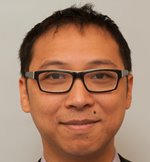 T.H. Eric Bui, MD, PhD is a professor of psychiatry at the University of Caen Normandy (France) and adjunct investigator at the Massachusetts General Hospital (Boston, Massachusetts) where he served in different leadership capacities as Harvard Medical School faculty for nearly ten years. His research focuses specifically on understanding the mechanisms and improving the treatment of anxiety and stress-related conditions, including PTSD and Complicated Grief.
T.H. Eric Bui, MD, PhD is a professor of psychiatry at the University of Caen Normandy (France) and adjunct investigator at the Massachusetts General Hospital (Boston, Massachusetts) where he served in different leadership capacities as Harvard Medical School faculty for nearly ten years. His research focuses specifically on understanding the mechanisms and improving the treatment of anxiety and stress-related conditions, including PTSD and Complicated Grief.
COVID-19 Grant Award Recipient Panel
Chair: Lia Smith
Panelists: Marina Smirnova, Shannon Cusack, Daniel Bustamante, Zoe Brier and Sara Babad
Lia Smith
Doctoral Student
University of Houston
This panel will bring together diverse perspectives to discuss the major theoretical, research and practice dilemmas at play when responding to the needs of conflict-affected communities in an ever-changing world. Each of the panelists is at the forefront of leading major research or intervention projects with displaced and conflict-affected people all over the world. The panel will discuss different approaches to designing mental health programs, particularly in the context of ongoing insecurity in conflict-affected settings and displacement situations. The panel will also consider how research and practice can inform one another to drive evidence-based innovations, and debate new directions for supporting the recovery, adjustment and resilience of people affected by conflict and displacement.

Lia J. Smith, M.A., is a doctoral student at the University of Houston in the United States. Her research interests focus on the risk (e.g., sleep disturbance, distress intolerance) and resilience (e.g., mindfulness, hope) processes at the intersection of trauma, substance use disorders, and health disparities.
Other Invited Speakers:
Jura Augustinavicius
Assistant Professor, McGill University
Johns Hopkins School of Public Health
Research Advisor, MHPSS Collaborative
 Jura Augustinavicius is an assistant professor at the School of Population and Global Health at McGill University. Dr. Augustinavicius is also affiliated with the Johns Hopkins School of Public Health and serves as a research advisor and lead on climate change at the MHPSS Collaborative hosted by Save the Children Denmark. She completed a doctorate and postdoctoral fellowship in the Department of Mental Health at the Johns Hopkins Bloomberg School of Public Health with special training in applied psychiatric epidemiology and mixed-methods approaches for use in mental health research and practice. Dr. Augustinavicius currently teaches graduate-level courses on climate change and mental health. Her research focuses on mental health assessment and intervention among populations exposed to adversity in low-resource humanitarian settings and in the context of climate change.
Jura Augustinavicius is an assistant professor at the School of Population and Global Health at McGill University. Dr. Augustinavicius is also affiliated with the Johns Hopkins School of Public Health and serves as a research advisor and lead on climate change at the MHPSS Collaborative hosted by Save the Children Denmark. She completed a doctorate and postdoctoral fellowship in the Department of Mental Health at the Johns Hopkins Bloomberg School of Public Health with special training in applied psychiatric epidemiology and mixed-methods approaches for use in mental health research and practice. Dr. Augustinavicius currently teaches graduate-level courses on climate change and mental health. Her research focuses on mental health assessment and intervention among populations exposed to adversity in low-resource humanitarian settings and in the context of climate change.
Ashlee Cunsolo
Founding Dean, School of Arctic and Subarctic Studies of the Labrador Institute of Memorial University
Member, Royal Society of Canada College of New Scholars, Artists, and Scientists
 Ashlee Cunsolo, PhD, is the founding dean of the School of Arctic and Subarctic Studies of the Labrador Institute of Memorial University, a former Canada Research Chair (Tier II) and a member of the Royal Society of Canada College of New Scholars, Artists, and Scientists. As a community-engaged health geographer, Ashlee is a leading voice nationally and internationally on climate change, mental health and ecological grief, and has written numerous articles on the topics as well as an edited book, Mourning Nature: Hope at the Heart of Ecological Loss and Grief. Ashlee is a regular media contributor on climate change, mental health and ecological grief; a contributing author to the IPCC AR6 North America Chapter and Cross Chapter Paper 6 Polar Regions; a lead author on chapters in the Natural Resources Canada and the Health Canada Climate Change Assessment Reports; and a commissioner for the Lancet Commission on Arctic Health.
Ashlee Cunsolo, PhD, is the founding dean of the School of Arctic and Subarctic Studies of the Labrador Institute of Memorial University, a former Canada Research Chair (Tier II) and a member of the Royal Society of Canada College of New Scholars, Artists, and Scientists. As a community-engaged health geographer, Ashlee is a leading voice nationally and internationally on climate change, mental health and ecological grief, and has written numerous articles on the topics as well as an edited book, Mourning Nature: Hope at the Heart of Ecological Loss and Grief. Ashlee is a regular media contributor on climate change, mental health and ecological grief; a contributing author to the IPCC AR6 North America Chapter and Cross Chapter Paper 6 Polar Regions; a lead author on chapters in the Natural Resources Canada and the Health Canada Climate Change Assessment Reports; and a commissioner for the Lancet Commission on Arctic Health.
Christy A. Denckla
Assistant Professor, Harvard T.H. Chan School of Public Health
Research Fellow, Stanley Center for Psychiatric Research at the Broad Institute of MIT and Harvard
Faculty Member, Harvard Medical School
 Dr. Christy A. Denckla is a clinical psychologist with joint appointments as an assistant professor in the Department of Social and Behavioral Sciences at the Harvard T.H. Chan School of Public Health, a research fellow at the Stanley Center for Psychiatric Research at the Broad Institute of MIT and Harvard, and a member of the faculty at Harvard Medical School. Her work aims to understand how adversity affects mental health and well-being across the life span, with a particular focus on bereavement. Dr. Denckla’s work is funded by an early career K23 award from the National Institute of Mental Health. She completed her postdoctoral fellowship in psychiatric epidemiology at the Harvard T.H. Chan School of Public Health and her clinical psychology internship at Massachusetts General Hospital, Harvard Medical School. Her doctoral research was completed at Adelphi University in New York.
Dr. Christy A. Denckla is a clinical psychologist with joint appointments as an assistant professor in the Department of Social and Behavioral Sciences at the Harvard T.H. Chan School of Public Health, a research fellow at the Stanley Center for Psychiatric Research at the Broad Institute of MIT and Harvard, and a member of the faculty at Harvard Medical School. Her work aims to understand how adversity affects mental health and well-being across the life span, with a particular focus on bereavement. Dr. Denckla’s work is funded by an early career K23 award from the National Institute of Mental Health. She completed her postdoctoral fellowship in psychiatric epidemiology at the Harvard T.H. Chan School of Public Health and her clinical psychology internship at Massachusetts General Hospital, Harvard Medical School. Her doctoral research was completed at Adelphi University in New York.
Evaldas Kazlauskas
Founder and Head, Center for Psychotraumatology at Vilnius University
President, European Society for Traumatic Stress Studies
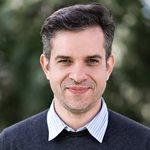 Prof. Evaldas Kazlauskas is a clinical psychologist and expert of trauma and stress-related disorders. He is the president of the European Society for Traumatic Stress Studies (2021-2022). Prof. Kazlauskas is the founder and head of the Center for Psychotraumatology at Vilnius University in Lithuania. For the past two decades, his work has been dedicated to trauma recognition and advocating for the implementation of trauma-informed care. His current research is focused on the assessment and treatment of ICD-11 stress-related disorders, internet-based interventions for stress-related disorders, effects of trauma across the life span, and effects of COVID-19 pandemic on mental health and adjustment.
Prof. Evaldas Kazlauskas is a clinical psychologist and expert of trauma and stress-related disorders. He is the president of the European Society for Traumatic Stress Studies (2021-2022). Prof. Kazlauskas is the founder and head of the Center for Psychotraumatology at Vilnius University in Lithuania. For the past two decades, his work has been dedicated to trauma recognition and advocating for the implementation of trauma-informed care. His current research is focused on the assessment and treatment of ICD-11 stress-related disorders, internet-based interventions for stress-related disorders, effects of trauma across the life span, and effects of COVID-19 pandemic on mental health and adjustment.
Kevin Leo Yabut Nadal
Professor
City University of New York
 Dr. Kevin Leo Yabut Nadal is a professor of psychology at both John Jay College of Criminal Justice and Graduate Center at the City University of New York. He received his doctorate in counseling psychology from Columbia University in New York City and is one of the leading researchers in understanding the impacts of microaggressions, or subtle forms of discrimination, on the mental and physical health of people of color; lesbian, gay, bisexual, transgender and queer (LGBTQ) people; and other marginalized groups. He has published over 100 works on multicultural issues in the fields of psychology and education. He is the author of ten books including Filipino American Psychology (2011, Wiley); That's So Gay: Microaggressions and the Lesbian, Gay, Bisexual, and Transgender Community (2013, APA); Microaggressions and Traumatic Stress (2018, APA); and Queering Law and Order (2020, Lexington). He has won numerous awards, including the American Psychological Association 2017 Early Career Award for Distinguished Contributions to Psychology in the Public Interest; the 2019 Richard Tewksbury Award from the Western Society of Criminology, and the Thought Leadership Award from the Robert Wood Johnson Foundation.
Dr. Kevin Leo Yabut Nadal is a professor of psychology at both John Jay College of Criminal Justice and Graduate Center at the City University of New York. He received his doctorate in counseling psychology from Columbia University in New York City and is one of the leading researchers in understanding the impacts of microaggressions, or subtle forms of discrimination, on the mental and physical health of people of color; lesbian, gay, bisexual, transgender and queer (LGBTQ) people; and other marginalized groups. He has published over 100 works on multicultural issues in the fields of psychology and education. He is the author of ten books including Filipino American Psychology (2011, Wiley); That's So Gay: Microaggressions and the Lesbian, Gay, Bisexual, and Transgender Community (2013, APA); Microaggressions and Traumatic Stress (2018, APA); and Queering Law and Order (2020, Lexington). He has won numerous awards, including the American Psychological Association 2017 Early Career Award for Distinguished Contributions to Psychology in the Public Interest; the 2019 Richard Tewksbury Award from the Western Society of Criminology, and the Thought Leadership Award from the Robert Wood Johnson Foundation.
Soraya Seedat
Distinguished Professor of Psychiatry, Stellenbosch University
Executive Head, Department of Psychiatry at Stellenbosch University
Director, South African Medical Research Council Unit on the Genomics of Brain Disorders
 Soraya Seedat is a Distinguished Professor of Psychiatry and the executive head of the Department of Psychiatry at Stellenbosch University, Cape Town, South Africa. She holds the South African Research Chair in Posttraumatic Stress Disorder and is Director of the South African Medical Research Council Unit on the Genomics of Brain Disorders. Her research focuses on gene-brain-environmental factors that are contributory to increasing or decreasing individual risk for PTSD and on evaluating psychotherapeutic interventions for youth PTSD that can be scaled up in low-resource contexts.
Soraya Seedat is a Distinguished Professor of Psychiatry and the executive head of the Department of Psychiatry at Stellenbosch University, Cape Town, South Africa. She holds the South African Research Chair in Posttraumatic Stress Disorder and is Director of the South African Medical Research Council Unit on the Genomics of Brain Disorders. Her research focuses on gene-brain-environmental factors that are contributory to increasing or decreasing individual risk for PTSD and on evaluating psychotherapeutic interventions for youth PTSD that can be scaled up in low-resource contexts.
M. Katherine Shear
Founding Director of the Center for Complicated Grief, Columbia School of Social Work
Professor, Columbia School of Social Work
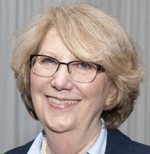 M. Katherine Shear, MD, is the Marion E. Kenworthy Professor of Psychiatry and the founding director of the Center for Complicated Grief at Columbia School of Social Work. Dr. Shear is a clinical researcher who first worked in anxiety and depression. For the last two decades she has focused on understanding and treating people who experience persistent, intense grief. She developed and tested prolonged grief disorder therapy (previously called complicated grief therapy: CGT), a short-term targeted intervention, and confirmed its efficacy in three large NIMH-funded studies. PGDT is strength-based and focused on fostering adaptation to loss. Dr. Shear is widely recognized for her work in bereavement, including both research and clinical awards from the Association for Death Education and Counseling and invited authorship of articles for Uptodate and the New England Journal of Medicine.
M. Katherine Shear, MD, is the Marion E. Kenworthy Professor of Psychiatry and the founding director of the Center for Complicated Grief at Columbia School of Social Work. Dr. Shear is a clinical researcher who first worked in anxiety and depression. For the last two decades she has focused on understanding and treating people who experience persistent, intense grief. She developed and tested prolonged grief disorder therapy (previously called complicated grief therapy: CGT), a short-term targeted intervention, and confirmed its efficacy in three large NIMH-funded studies. PGDT is strength-based and focused on fostering adaptation to loss. Dr. Shear is widely recognized for her work in bereavement, including both research and clinical awards from the Association for Death Education and Counseling and invited authorship of articles for Uptodate and the New England Journal of Medicine.